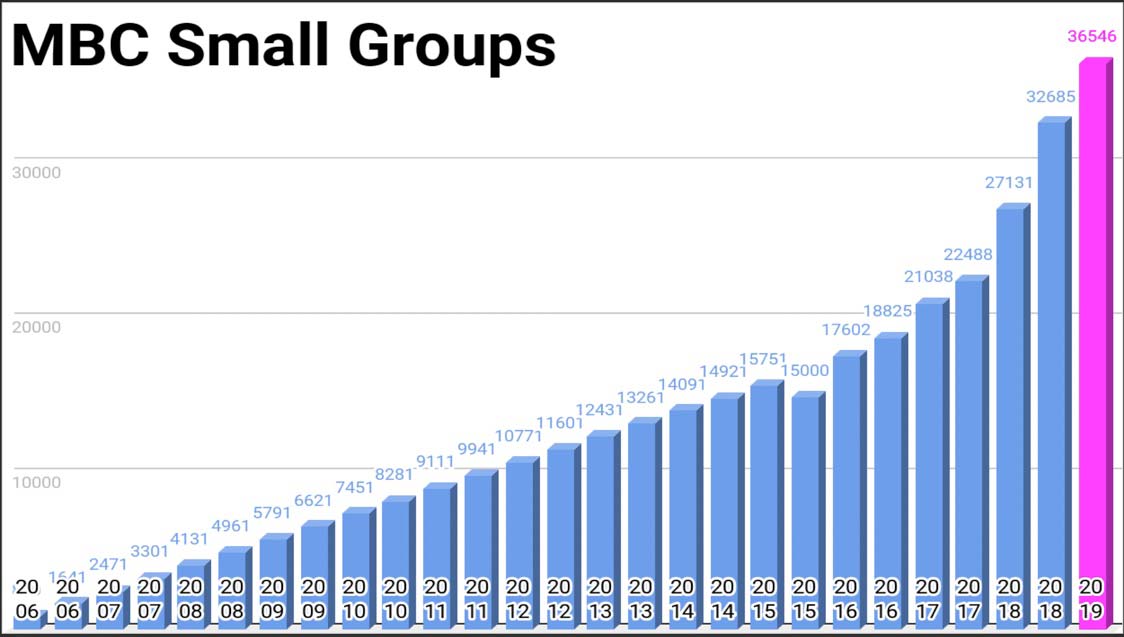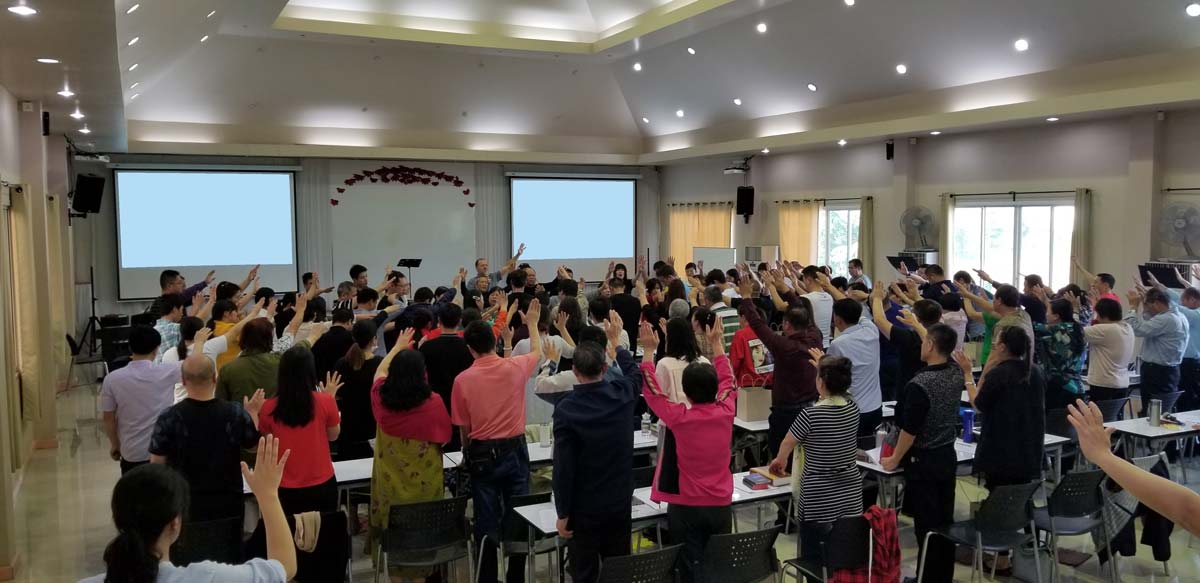International Cooperating Ministries (ICM) has a unique model for church development. Simply put, we partner with indigenous ministry leaders and provide funds to build churches, as well as Bible study materials and general oversight. In return, our in-country partner covenants with us and with God to plant five second-generation churches.
When I showed up at my first GACX Forum in 2017, I had been working at ICM for about a year and had a pretty good understanding of ICM’s global ministry strategy. We had seen steady growth in our first and second-generation churches for decades. Things were good!
But that first year at the GACX forum changed me and (I believe) ICM forever. What I experienced and learned has since generated an all-encompassing change in ICM’s culture and approach to discipleship.
When I got fired up about rapid, healthy multiplication, I desired swift and sweeping cultural change.
Getting My Bell Rung
I train with a boxing coach every morning. One of my favorite things to do while training is to “work the focus mitts.” A coach puts on a padded pair of gloves and calls out specific types of punches that he wants you to perform while he provides a counter-force. Every once and a while, to keep you on your toes, a good coach will take a swing at you with a mitt to make sure you are keeping your guard up. If you are too focused on the way you are punching, you completely miss the coach’s swing and get tagged in the side of the head. This is called “getting your bell rung.” If you’re like me, this happens multiple times a session and you cope with ringing ears as your new normal.
These training sessions remind me of my first day of plenary sessions at the GACX forum. Going into the forum I was very focused on discipleship and church planting and on ensuring that I was doing it right, as I had been taught. If I’m honest, I thought that I might even be able to show other participants how to throw some of my lumbering discipleship punches.
So, I was caught totally off guard when Curtis Sergeant, Zack Duke, Stephen Nelms, and Steve Addison rung my ears, as it were, with the raw truth concerning the lost in our world and the differences between addition and multiplication. I was so focused on throwing my specific kind of “mission punches” that I got knocked to the ground by this new approach. Needless to say, I was pretty beat up as I came home from that conference. My ears have been ringing ever since. But that ringing has driven me to seek multiplication movements in every missional space in which the Lord gives me influence.
God is Moving
Fast-forward a few years and God is creating a healthier, more sustainable movement through ICM’s church-planting partners than we ever saw before. With our original methodology, we established 15,000 weekly small groups over the course of 10 years—praise God! But by shifting our training focus to multiplication principles, the three-thirds approach, and accountability-based discipleship, in less than three years we have seen that number grow to 35,000 groups and house churches.

Moreover, the resulting cultural shift has led ICM to become heavily involved in house-church-planting training in areas in the Middle East and East Asia that we never thought we would work in. Every type of project we do has become an opportunity for sparking a movement—whether it’s satellite TV, in-person training, radio, technology or distribution.
More than that, there has been a noticeable shift in the culture at ICM itself. From staff to leadership the language and focus is all about reproducing groups, multi-generational disciples, and Simple Church ecclesiology. Now, we still get our ears rung from time to time, but we are regularly experiencing God’s faithfulness as we continue to trust Him in these endeavors.
Implementation Challenges
Of course, there have been challenges along the way. When I got fired up about rapid, healthy multiplication, I desired swift and sweeping cultural change. But ICM has grown significantly in its 30 years of ministry, and it takes a while for a new paradigm to take root. There is the task of educating internal stakeholders — leadership, board members, and staff — and this requires a great deal of patience and understanding to do well. Also, there is the matter of communicating these changes to our financial investors. Trust relationships had been developed over many years and investors needed consistent communication about new patterns of ministry
And then there has been the external challenge of how to implement these discipleship changes in the field. Outside of necessary changes in processes, expectations, and relationships with our global partners, we needed to incorporate those changes into the work that had already been done over the last 30 years of the ministry. For example, our audio-format Bible study curriculum had been translated into more than 40 languages, and had been distributed and taught to our partners along lines consistent with our original processes. We needed to utilize this vast store of resources, while shifting our approach to discipleship.
The major catalyst for this shift was the dedication of a staff member to this issue—Brad O’Dell, who also attended the GACX Forum in 2017. Brad re-wrote our training package completely, nesting it into a broader discipleship platform. Now our discipleship content is a Bible study tool used in accountability-based, three-thirds style multiplying groups, as opposed to the content being an end in itself. Also, we now hold church leaders to an Ephesians 4 standard of “equipping all saints for the work of ministry.” Developing this material, writing it such that it can be used by trainers, and re-shaping it based on partner feedback has been a substantial, multi-year, ongoing effort. And making the case for this valuable use of human resources has been an ongoing challenge.

Why We Partner
The beautiful thing about GACX is that so many people jumped in to help us along the way. One of the reasons I love the GACX community is because this is something you never have to worry about doing alone. We talk about partnership a lot at GACX, and one of the best ways we have found to partner is to take a posture of learning. We learned so much from other GACX members as we sought to engage in this discipleship approach.
For example, Zach Duke of Big Life flew to our office on numerous occasions and walked me, my staff members, and even my local church through their multiplication training. They sent us their complete training package and encouraged us to use as much as we wanted without giving them credit. Wade Mantlo from the Global Church Movements team shared the MC2 training with us and came to Virginia three times to train me, my staff, and my local church. Most recently, The Timothy Initiative shared their church planting strategies with us too! On top of all this, the friendship of these and many others have encouraged us to stay the course—which has proven invaluable.
So my main encouragement to others in similar situations would be to draw upon the experience and resources of other members. I know personally that being compelled at a GACX Forum can be a daunting thing. But it will only be daunting if we are compelled without being equipped. Thankfully, because of GACX and the community it represents, we need not fear this situation. The bad news is that the task in front of us all is too big for one person or one organization to finish. The good news is that GACX is an unbelievably generous family of partners that can help.
We can do it together.
